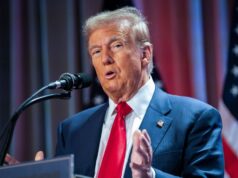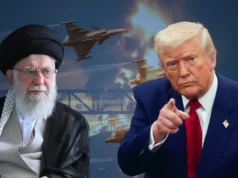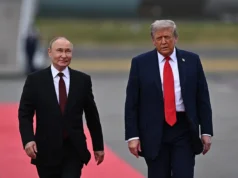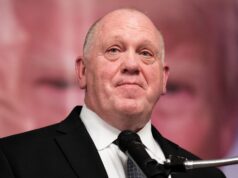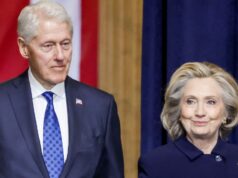The third stop on Trump’s Asian tour, which has already seen him praised at a regional meeting in Malaysia and flatteringly referred to as a “peacemaker” by Japanese Prime Minister Sanae Takaichi, is a two-day visit to South Korea, a crucial ally of the United States.
The world’s two biggest economies are engaged in a fierce trade battle that may end with a truce after US President Donald Trump travels to South Korea on Wednesday for a crucial meeting with Chinese leader Xi Jinping.
The third stop on Trump’s Asian tour, which has already seen him praised at a regional meeting in Malaysia and flatteringly referred to as a “peacemaker” by Japanese Prime Minister Sanae Takaichi, is a two-day visit to South Korea, a crucial ally of the United States.
On Thursday, however, Trump and Xi will meet for the first time in six years, and the world will be watching.
It might decide whether the US and China can end a trade war that has shook world markets and caused a panic in global supply networks.
The agreement of a “framework” has been acknowledged by both Beijing and Washington negotiators.
Trump and Xi will now have to approve it during their meeting on the sidelines of the Asia-Pacific Economic Cooperation (APEC) conference in Gyeongju.
William Yang, an analyst at the International Crisis Group, stated that “there appears to be a mismatch in terms of where both countries are, heading into the Trump-Xi summit.”
He said that China is concentrating on “building more mutual trust, managing longstanding differences, and steadying the bilateral trade relationship,” while the United States “is eager to reach any trade deal that Trump could declare as a victory.”
Complicated
Trump is scheduled to arrive in Busan, South Korea, after spending two days in Tokyo, where Takaichi, Japan’s new conservative premier, celebrated a “golden age” in bilateral relations.
Two months after their first meeting in Washington, the US president will go to Gyeongju for a summit with South Korean President Lee Jae Myung. This will be their second face-to-face meeting.
Given that the two sides are still at odds over an agreement between the main economic partners, the conversation will probably center on trade.
Trump claimed in July that Washington had agreed to lower South Korean import duties to 15 percent in return for Seoul’s $350 billion investment plan.
However, the two governments are still at odds over the terms of the investment agreement, and high auto tariffs are still in effect.
Trump has disputed that there was a “snag” in the negotiations, but US Treasury Secretary Scott Bessent acknowledged Monday that there were still “a lot of details to work out” in what he described as a “complicated” arrangement.
Anti-Trump protests calling out his “predatory investment demands” will take place in Gyeongju as activists prepare to greet the US president, whose broad tariffs set off the trade war.
DMZ gathering?
Trump has also invited Kim Jong Un, the leader of North Korea, to meet with him when he is on the peninsula, adding to the diplomatic high drama.
The Demilitarized Zone (DMZ), the tense Cold War border that has divided the two Koreas for decades, was the site of the two leaders’ most recent meeting in 2019.
Trump has stated that sanctions may be a topic of discussion and that he would “love to meet” Kim.
However, North Korea has not yet formally acknowledged receiving the invitation. There is disagreement among Seoul officials over whether it will proceed.
Kim claimed to have “fond memories” of his talks with Trump last month.
Additionally, he stated that if the US backed off from its “delusional” demand that Pyongyang surrender its nuclear weapons, he would be amenable to negotiations.
Chad O’Carroll, the creator of the specialized website NK News, told AFP that Trump has made it plain that he wants to meet.
“The ball is in Kim Jong Un’s court.”
However, the US leader today confronts a different Kim than in 2019—one who has gained critical support from Russia after deploying thousands of North Korean troops to fight alongside Moscow’s forces, and who is emboldened by their diplomatic romance during Trump’s first term.
“North Korea has time on its side and isn’t as isolated as before,” stated Hong Min, a senior expert at the Korea Institute for National Unification.
A discussion with concrete outcomes, such as denuclearization negotiations, will not take place, he told AFP, but a surprise event to demonstrate personal connection is possible.
